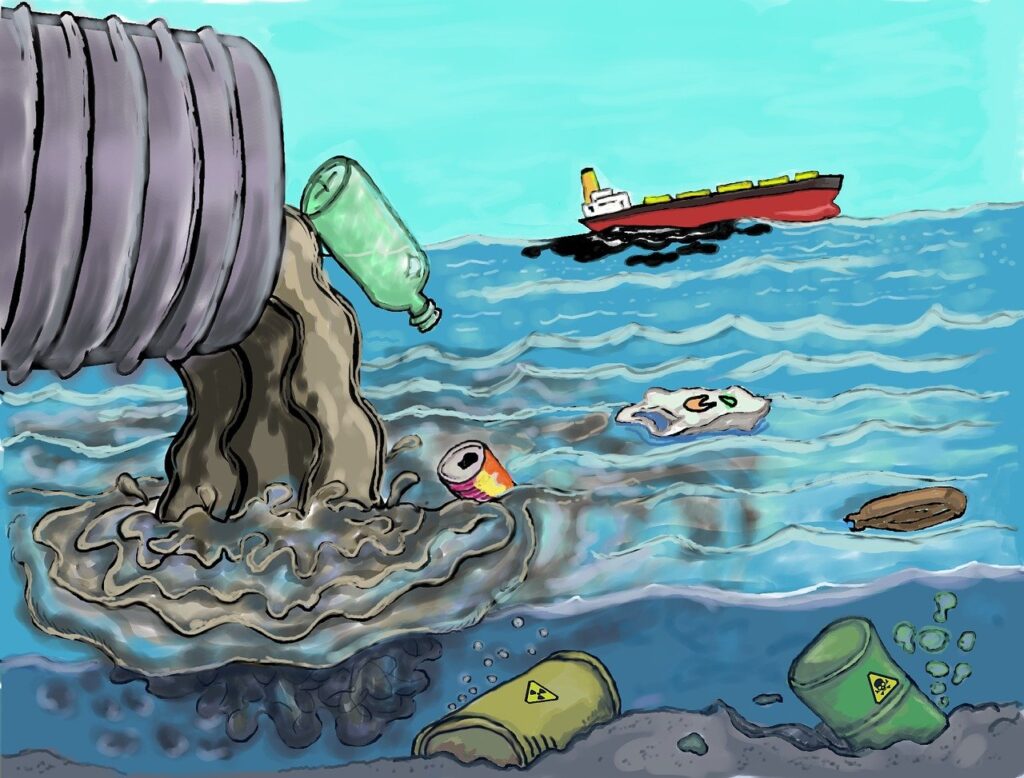In the sustainable transition we are always looking for a “win-win” scenario, especially when it comes to resource and energy management. The ultimate aim of sustainable development is to protect the environment while simultaneously achieving economic growth. Such a goal is supposed to be reached through the decoupling of the environmental and economic impacts of growth. However, the concept of the Jevons Paradox challenges these optimistic assumptions.
The Jevons Paradox
The Jevons Paradox was introduced in 1865 and it states that increased efficiency can paradoxically result in increased resource extraction. The idea came from observing the growing coal sector. The invention of equipment requiring less coal consumption led to greater overall consumption because the cheaper-to-operate equipment became valuable for many more uses. This happens because efficiency improvements are used to increase profits and production is likely to be expanded. Such dynamic is also known as the Rebound Effect.
Is the Rebound Effect a real thing?
Even though its existence is uncontroversial, authors are still debating the real impact of the Rebound Effect. For instance, studies about labor use often find that, despite growing worker productivity, the hours of work per week did not decline. This is probably because of the use of gains in efficiency to expand production instead of providing additional leisure time to workers. At the national level we find evidence of the Rebound Effect because of the positive association between the energy efficiency of the economy and energy consumption levels. In China, the amount of energy used per dollar of GDP declined by a factor of 5 between 1971 and 2011. However, the energy use per capita trend is steadily upward over the same period. A similar pattern characterises also in other nations as cross-national data shows that the most efficient nations tend to have the highest energy consumption levels.
However, instances of resource use growth as efficiency improves do not necessarily mean that efficiency is the sole cause. In some instances efficiency could be a suppressing force in resource extraction but still insufficient to overcome other factors. The identification of these cases can provide a significant help in the design of policies.
Modernisation is not always the solution
The discussion around efficiency regards the extent to which modernization can address environmental issues. Supporters of Ecological Modernisation Theory point out that technological development can dematerialise production and reduce GHG emissions. This theory rests on the fact that improved efficiency reduces the amount of resources used per unit of production. On the other hand, critics highlight the need for radical societal changes. Political economists identified technology as one of the main drivers of traditional economic growth. Therefore efficiency and resource use reinforce each other: higher profits coming from higher efficiency are reinvested to expand production.
In conclusion, technologically driven efficiency improvements do not naturally move towards sustainability. This suggests that efficiency is a measure of economic performance (profits per unit of resource) but not of environmental performances. For this reason, a number of theories argue to use as indicators the absolute resource consumption or the waste production.
How can we measure the Rebound Effect?
The Rebound Effect is generally computed as the ratio between actual and expected resource savings. If such a ratio is higher than one, there is an increase in resource consumption which realises the Jevons Paradox. However, practical estimation is quite complex.
When efficiency improves, the relative price of goods changes, thereby influencing consumers’ consumption. Therefore, the Rebound Effect consists of income and substitution effects. Consumers will switch to more efficient products as they become cheaper and move away from those that became relatively more expensive. This mechanism will increase consumer’s purchasing power. Therefore, the overall consumption will increase if we assume both efficient and less-efficient product to be normal goods. Measuring all these adjustments is not straightforward as they depend on multiple factors: difference in energy intensity, difference in prices, taxes and wages influencing purchasing power and so forth.
Keep your eyes open!
The theory of the Rebound Effect warns us about the complex relationship between efficiency improvements and resource use. The understanding of such complexity and the possible contradictions needs to be the basis of the green transition. Sustainability is a multifaceted challenge as we need to combine technological development with thoughtful policies.
Anthropocenic solutions to the climate crisis often trust technology blindly and fail to address the need to elaborate broader principles about how we should live in the future. From this perspective, it is fundamental to design a fairer society in which consumption is linked to human needs. This is the only way to prevent the sustainable transition to backfire.



